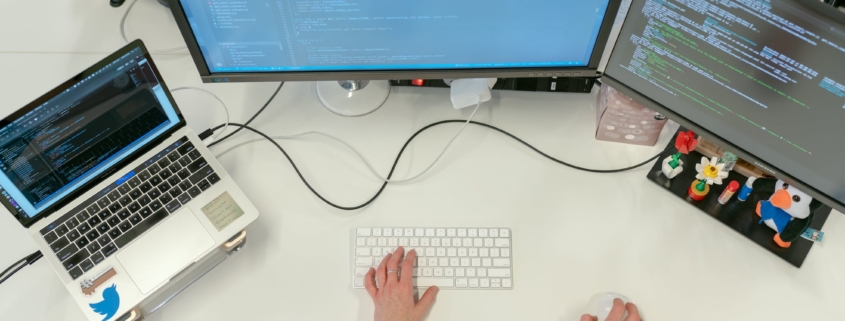Do You Know these 5 Things About Cybersecurity?
Every day there’s a report about data being stolen, a company having its site held ransom or people fighting identify theft. Unfortunately, in our increasingly digitally-reliant world, these issues are not going to decline, but only increase.
While this is hard on society, it is great news for those in the cybersecurity field! There will always be jobs for those who have cybersecurity training and expertise like Security+ certification, Network+ certification, CompTIA A+ certification and CySA+ certification. But is that training enough? No. Unfortunately as the nature of cybersecurity and cyber attacks evolves, shifts and fluctuates, there will be a constant need to learn new things – some of which aren’t necessarily taught in valuable and essential courses.
For example, do you know these 5 following things about cybersecurity? If not, it may be time to add a weekly scan of headlines, cybersecurity websites and hashtags in social media in order to keep the minute-by-minute learning up-to-speed.
1. Small businesses are just as likely to be targeted as large ones.
According to David Bleiweiss of Fortitude Development, nearly half of the cyberattacks in 2020 were on small business. This means that the assumption of “our business is too small to be a target” and “we are too small to need a cybersecurity budget” are incorrect.
Even small organizations need to find ways to include cybersecurity in their budgeting process because if they don’t, the results could certainly cost a lot more. The average cyber attack can easily cripple a company with costs into the millions.
2. What employees share on social media is an issue.
No organization wants to be big brother with employees, but the truth is that everything connected to the internet is a risk. Cell phones used to access company networks, cloud-based apps, working from coffee shops; without the right information, security and training, all of these can lead to security issues. But perhaps, what is more concerning is what people do on social media. That cute quiz about your favourite things on Facebook may seem like fun but it gives key insights into weak passwords and behaviours.
Employees need to know that their behaviour online (like when they give up their first pet’s name) can be a potential issue for the organization they work for, not to mention their own personal identity security.
3. Ransomware is on the rise.
Ransomware isn’t about stealing data as much as it’s a way to prevent access to information, tools and data which leads to a demand for money. This is an issue for individuals and organizations as it can apply to things like websites, files and general access.
Those who engage in ransomware are growing more and more sophisticated in their ability to breach security. It may be done through phishing techniques like the email that causes someone to reveal a password or other sensitive information or it may be through more traditional hacking techniques where a cyber criminal finds a weak point to gain access and take control.
4. According to Myabt.com in a blog post by Steve Tschope, 93% of breaches could have been avoided.
Imagine that. By putting cybersecurity people and tools in place, the embarrassment, cost and effort in cleaning up a cyber attack can be avoided. It doesn’t require as big of an investment as may be assumed. There are IT consultants who can provide insight and action steps without becoming full time employees. This freelance IT pool is a game-changer to help small businesses increase security without adding an employee.
5. Less than 2% of cybersecurity is conducted by humans says a video from Alux.com.
It does take a wide range of individuals in the cybersecurity field to ensure organizations are kept safe from cyber attacks, but truthfully, these people do a small percentage of the actual work in preventing attacks. Robots, apps and automated software are the tools of the trade that do the lion’s share of the work. Humans ensure these tools run properly, are effective and efficient, do cybersecurity planning and brainstorm around new threats and how to block them.
Those in the cybersecurity field need to be ahead of everyone else in their understanding of the industry. If any of these 5 points were a surprise to you, it’s time to step up your additional learning
Read our other blog: The Shift Toward Intuitive UX Design



